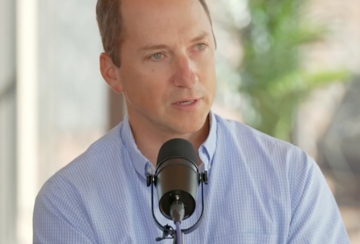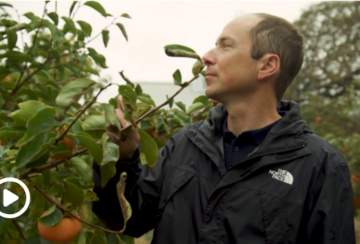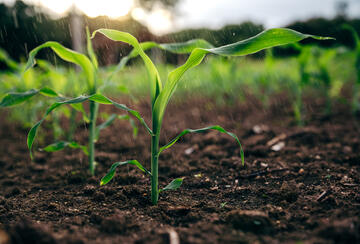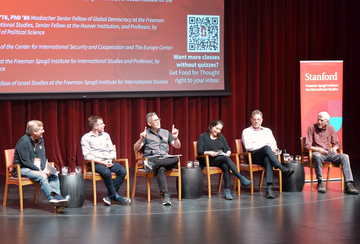FSE News
Scientists are examining how food systems and climate change intersect to help secure reliable food access worldwide. “We’re not going to solve the climate problem if we don’t solve the food problem.”
In many parts of the world, staple crops such as maize and wheat are dependent on rainfall recycled from land rather than oceans, making them more vulnerable to drought. Researchers at Stanford and the University of California San Diego identified a critical threshold in atmospheric moisture sources that could help predict and prevent future crop failures.
At Stanford's 2025 Reunion weekend, scholars from the Freeman Spogli Institute for International Studies shared insights into what can be done to address climate change, AI competition with China, Middle East security, democratic backsliding, and the war in Ukraine.
Jennifer Burney combines physics, economics, and on-the-ground data to understand how practical, local solutions and better policies can help improve access to food, support farmers, and drive down planet-warming emissions.
We are saddened to share the passing of our dear friend and colleague, Lori McVay, who died on March 29, 2025, at the age of 65.
A Stanford food and agriculture expert discusses a record-setting slab of lab-grown meat – and what it means for the future of food.
A Stanford study reveals how climate change has altered growing conditions for the world’s five major crops over the past half century and is reshaping agriculture. The impacts corroborate climate models used to predict impacts, with a couple of important exceptions, according to the researchers.
Dozens of faculty members at Stanford are working to transform the way the world grows, distributes, and consumes food, with research and scholarship spanning topics including sustainable food systems, food security, health equity, culture, and diet.
Climate change and flagging investment in research and development has U.S. agriculture facing its first productivity slowdown in decades. A new study by researchers at Stanford, Cornell, and the University of Maryland estimates the public sector investment needed to reverse course.
![[Left to right]: Michael McFaul, Marshall Burke, Steven Pifer, Oriana Skylar Mastro, Didi Kuo, and Amichai Magen on stage.](https://fsi9-prod.s3.us-west-1.amazonaws.com/s3fs-public/styles/360x244/public/2024-10/fsi_reunion_2024_panel_hero.png?h=c4d9845d&itok=WvcEw60l)
At a panel during Stanford's 2024 Reunion weekend, scholars from the Freeman Spogli Institute for International Studies shared what their research says about climate change, global democracy, Russia and Ukraine, China, and the Middle East.
Look back at the most impactful environment and sustainability research from Stanford scholars in 2023.

Professor Tal’s expertise in sustainability and public policy will offer students valuable insight into the intersection of climate change issues and politics in the Middle East.

Paper examines the benefits and tradeoffs of interactions between aquaculture and small-scale fisheries across 46 case studies.
Researchers used satellites to measure both photosynthetic activity and aerosol pollution in Europe. The results demonstrate that plants capture more carbon on the weekends when industrial production is decreased, and fewer people commute.

At Reunion Homecoming, FSI Scholars Offer Five Policy Recommendations for the Biden Administration
FSI scholars offer their thoughts on what can be done to address political polarization in the United States, tensions between Taiwan and China, climate change, the war in Ukraine, and the Israel-Hamas war.

Naidoo brings a multi-disciplinary perspective from his experiences as a leader at Greenpeace International, Amnesty International, and other causes to the students and scholars at FSI and beyond.

Raised on a farm in east Iowa and educated in a one-room schoolhouse, Falcon became an internationally sought-after agricultural adviser as a Stanford professor.
Farmers in India have adapted to warming temperatures by intensifying the withdrawal of groundwater used for irrigation, according to a new study. If the trend continues, the rate of groundwater loss could triple by 2080, further threatening India’s food and water security.
Research shows adding minerals to farmland soil could help prevent condition associated with long-lasting harmful consequences.

Researchers at the Stanford Center on Food Security and the Environment and other institutions find that the vulnerability of blue foods to environmental change has been vastly understudied.



















